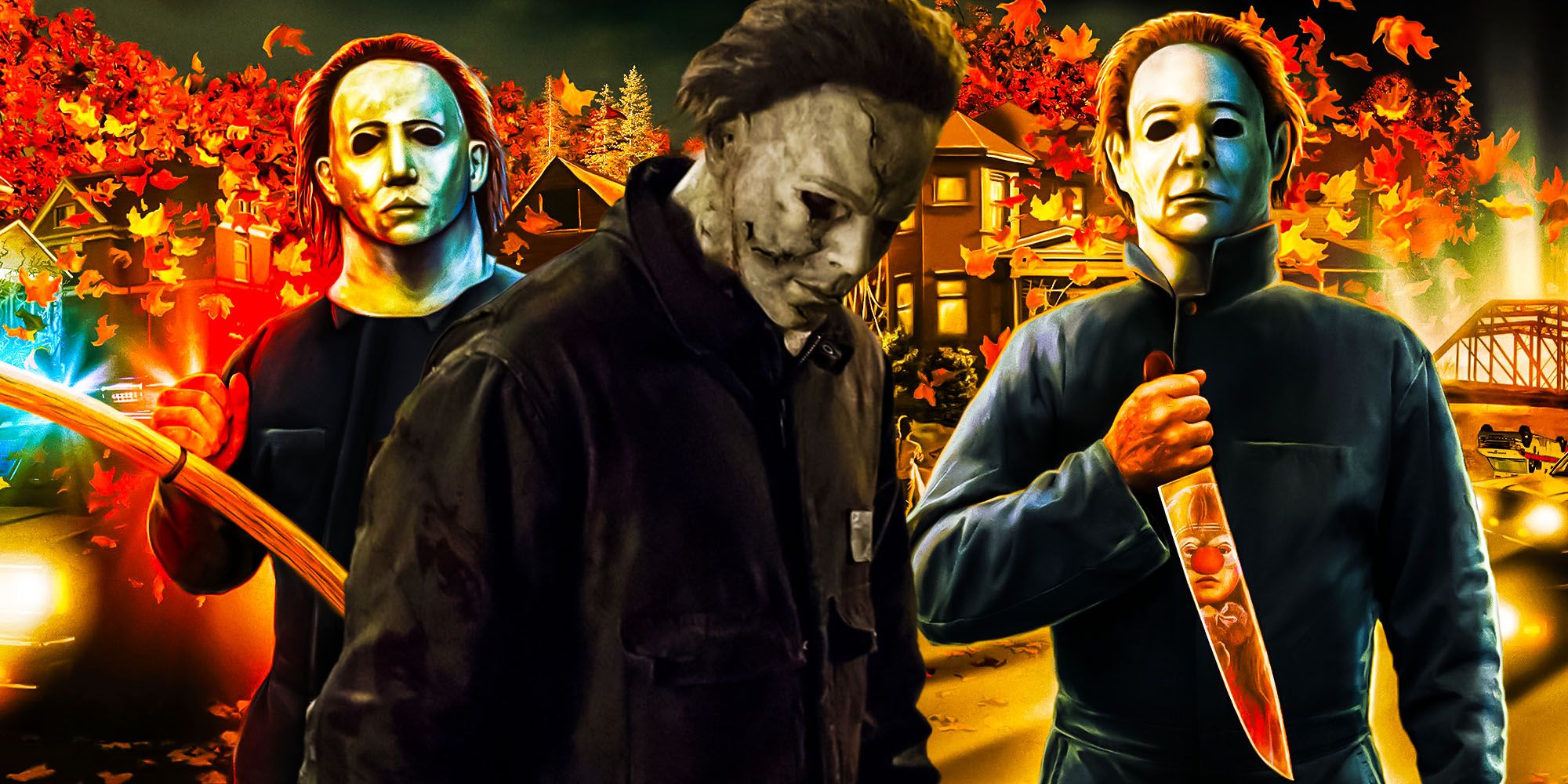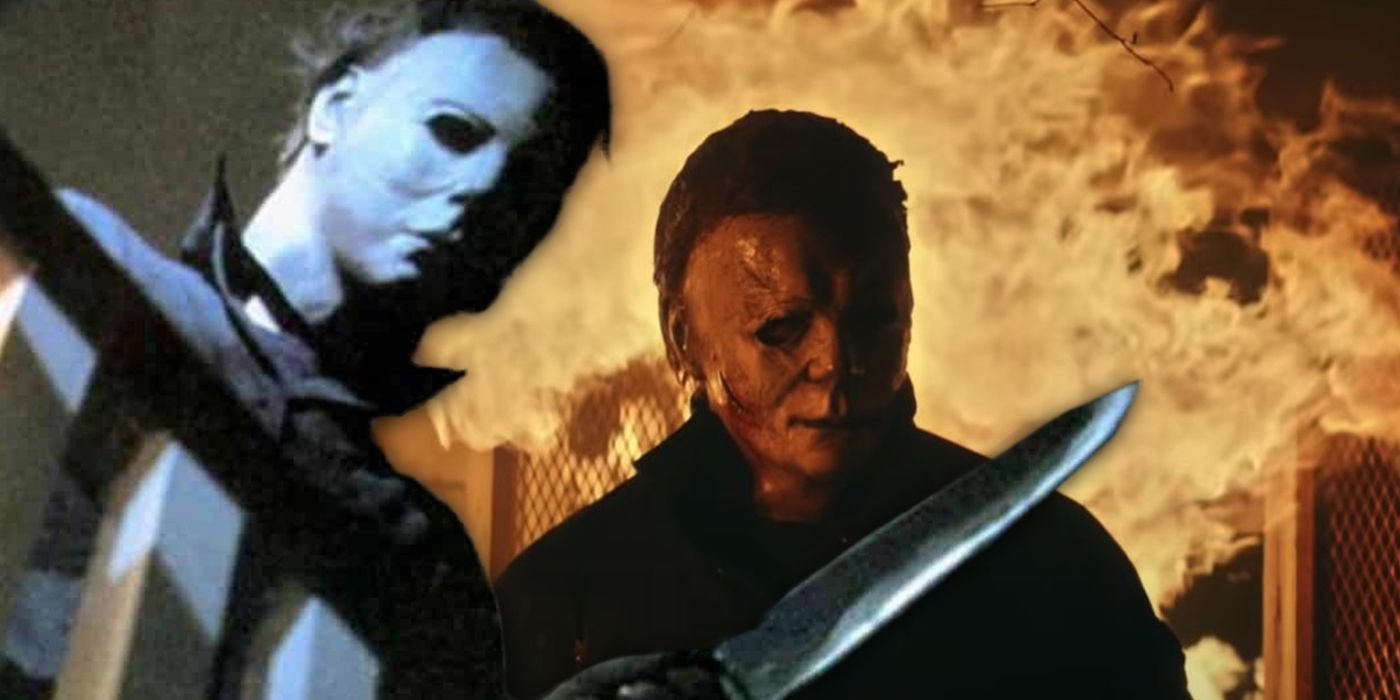A proposed Halloween reboot trilogy revealed there is a Halloween multiverse. Halloween 1978 set the blueprint for the slasher movie subgenre that would follow, with everything from Friday The 13th to Scream working off its template. Given the sheer number of sequels and reboots the series has received, the timeline has become something of a tangled mess. The latest iteration began with Halloween 2018, with this David Gordon Green helmed outing ignoring everything bar John Carpenter's original.
This freed up the narrative, but it's the latest in a recurring habit of the franchise to periodically hit the reset switch. Halloween has basically become a "Choose Your Own Adventure" narrative, which encompasses everything from the Halloween "Thorn" trilogy (parts 4-6) to Rob Zombie's remakes. For a series spawned from such a clean, simple premise - a borderline supernatural killer stalks some babysitters - the storylines have become increasingly convoluted over the decades. While Green's Halloween promised to return to that same simplicity, Halloween Kills also attempted to apply motives to Michael, which took away some of his mystique.
The Halloween franchise has also taken numerous breaks from the big screen, often following the underperformance of a given sequel. Halloween 5 fared poorly, and it was six years until the series returned. Zombie's Halloween II is easily one of the most divisive entries, and it took almost a decade for Green's reboot to hit screens. During this period, writer Stef Hutchinson - who penned Halloween comics such as Nightdance - proposed an ambitious, dark trilogy that totally reimagined the series and introduced a Halloween movie multiverse.
Hutchinson's sprawling plans are detailed in the making of book Taking Shape II: The Lost Halloween Sequels by Dustin McNeill and Travis Mullins. In broad strokes, the three chapters of this Halloween trilogy were dubbed Rise Of The Boogeyman, The Witching Hour and Fires Of Samhain. The first opened in the 1980s with The Shape - who is no longer even dubbed Michael Myers - as a child, who kills two people one Halloween night. The story jumps decades ahead to a young Dr. Sam Loomis, who has a wife and young son. Loomis is haunted by the death of a patient linked to the case, and after meeting The Shape, accidentally drops his lighter, which allows the killer to escape.
Rise Of The Boogeyman reimagines and recontextualizes familiar scenes and characters, and offers major surprises like the death of presumed lead Laurie Strode. This version of Michael Myers/The Shape seems to be from a netherworld dubbed "The Luminal," and he seems intent on destroying Loomis' life. By the end of part 1, Loomis has failed to save anyone and the story ends with Michael arriving at the doctor's house to kill his wife. Things only get worse for Loomis in The Witching Hour, as he's recovering from the trauma of his wife's death. He also learns his son was killed by Michael and that by spying on his therapy sessions, The Shape also knows his biggest fears, which he uses to drive Loomis to the brink of madness.
While Halloween: Rise Of The Boogeyman was more of a traditional slasher movie, Witching Hour was a dark psychological thriller. The final outing Fires Of Samhain revealed Michael Myers ' supernatural plan, which involved a mass sacrifice by commanding an army of "Shapes." He would use his "Luminal" powers to influence the patients of a local asylum as pawns to kill the residents of Russellville and make "the hills run red," as Halloween III villain Cochran once proclaimed. Without spoiling the ending, Loomis' trips to The Luminal also revealed there is a Halloween multiverse with different Shapes, from the Michaels seen in Halloween 1978 to Zombie's remake - and even those viewers had never seen.
While the movie didn't feature any crossovers, this Halloween multiverse was intended by Hutchinson to free up the series. This would allow future Halloween filmmakers to do as they wished, and not worry about canon. They could revisit an old timeline or simply start fresh again. Sadly, the studio had little interest in a new reboot post-Rob Zombie's movies, so Hutchinson's Halloween trilogy idea was scrapped.


